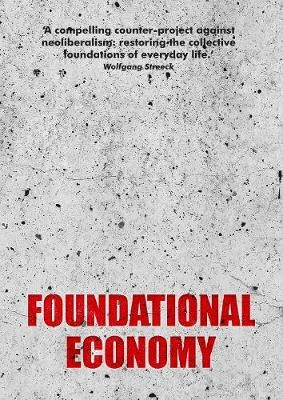✕
Foundational Economy – The Infrastructure of Everyday Life

Level:
beginner
Blurb
Foundational economy is the most important concept you have ever heard of. The foundational encompasses material utilities like water, gas and electricity and providential services like education, health and care. Taken together, these services matter economically and politically because they are the collectively consumed infrastructure of everyday life, the basis of civilisation and should be citizen rights. This foundational economy has a history which began heroically and ends in degradation. In the century after 1880 national and local state action built up the supply of foundational services right across Europe and North America. Since 1980 their systems of provision have been undermined by state neglect. This is variably combined with privatisation, outsourcing and market choice which import the unsuitable business models of financialised public companies and private equity. The challenge then is to think about how we can have a better future. This book does not recommend specific policies but proposes broad principles for rebuilding the foundational which could mobilise old and new social actors in broad political alliances: ask citizens what they want; reinvent taxation; lean on intermediary institutions; and do not assume the state is benign and competent.Comment from our editors:
This relatively compact and fresh contribution to economic debates highlights through the concept of the foundational economy (FE) the importance of public infrastructures in everyday economic activities. FE designates the “invisible” sectors of the economy such as public transportation, education, telecommunication, energy, health and care systems as its essential backbone without which everyday life in modern civilized societies would not be possible. A thought provoking book that is not only of interest to (political) economists but might be equally of interest for urban planners, human geographers, sociologists and interested citizens alike and one that opens a whole new field of research.
This material has been suggested and edited by:
We use cookies on our website. Click on Accept to help us to make Exploring Economics constantly better!

